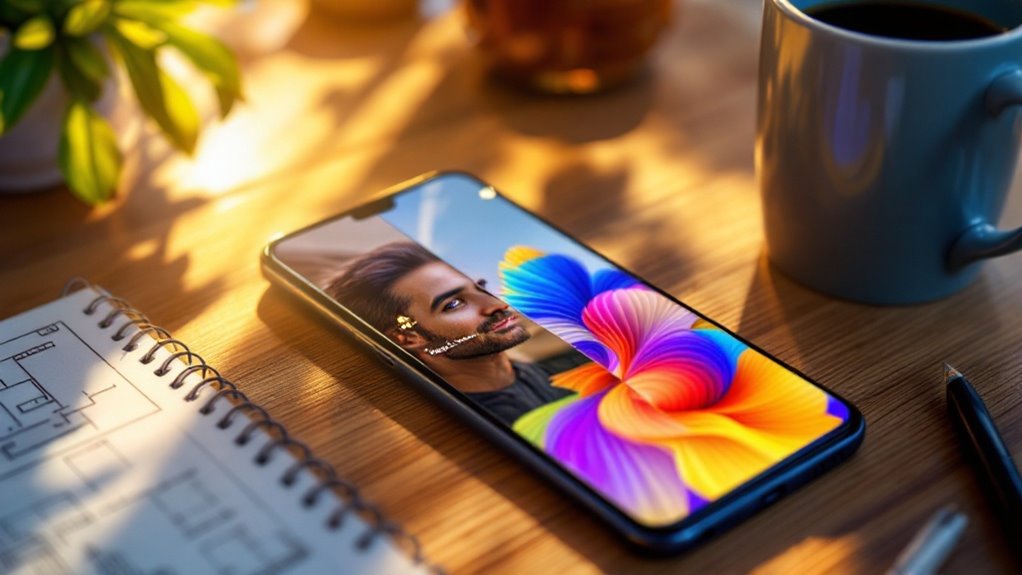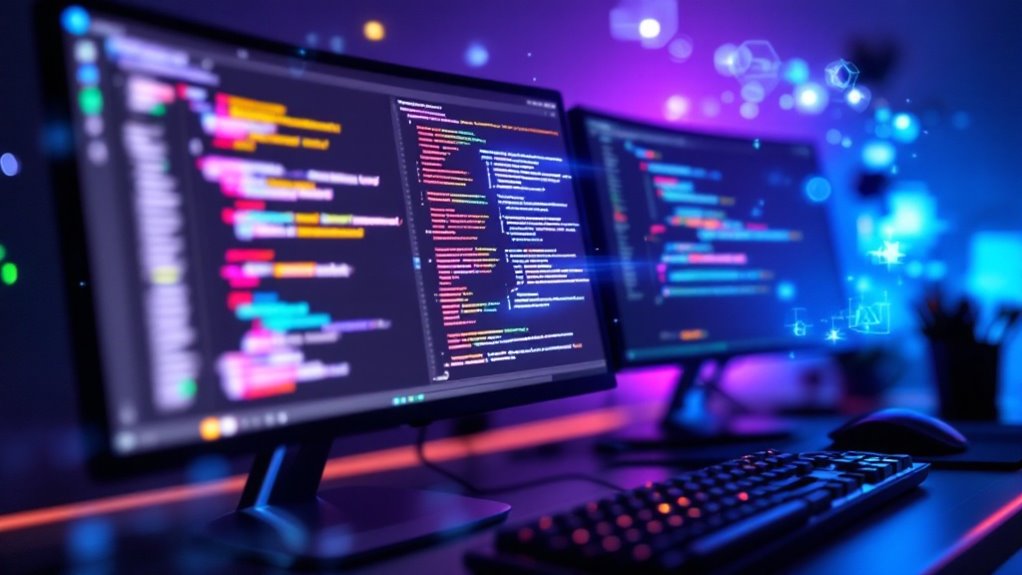AI on your Android phone isn’t just for sci-fi geeks or Bond villains—it’s practical magic. Android users can tap AI features for custom wallpapers, banish photobombers with Magic Eraser, or turn voice recordings into tidy notes, no complicated sorcery required. Features like Circle to Search mean no more frantic app-switching when you need info fast. Gaming gets audibly sharper, and AI spots phishing scams before you do. Want your phone to actually work for you? Stick around.
Even if you haven’t given it much thought, your Android phone is basically a pocket-sized AI sidekick—minus the cape, but with way more features than Batman’s utility belt. Seriously, Android users have a smorgasbord of AI tools at their fingertips, some of which might go unnoticed until you start poking around. It’s not just about asking your phone for the weather (although, yes, it’s very good at that).
Feeling artsy? Generative AI wallpapers let you give your phone a fresh look daily—think abstract swirls or landscapes crafted by algorithms instead of overused stock images.
Tired of boring backgrounds? Generative AI wallpapers remix your home screen with unique, algorithm-crafted art every single day.
Photo buff? Tools like Magic Editor and Magic Eraser use AI to zap out photobombers or turn meh snapshots into social-media gold. Even texting gets a glow-up: Magic Compose spices up your replies, so you don’t always sound like a robot yourself. These features represent early applications of what NLP specialists are developing for more advanced consumer technologies.
Divider
—
For productivity, Android leans into AI like a caffeinated study buddy. Circle to Search lets you highlight anything on your screen—text, images, memes—then instantly search it, no frantic app-switching required. Android also makes it easier to spot phishing attacks, providing extra layers of protection while you’re getting things done. Many flagship Android phones now include AI transcription summarizers that quickly turn voice recordings or meeting notes into concise summaries.
Students, take note: AI-driven learning tools solve math and physics problems step-by-step, which means less time panicking, more time pretending you totally understood the homework from the start.
*Multitasking?* Devices like the Galaxy Z Fold5 let you play a game while texting, or watch a video during a video call with hands-free mode. Because why do just one thing when you can do three, right?
Divider
—
Gaming gets an AI-powered turbo boost, too. AI-driven graphics optimize visuals on the fly, while certain games use AI to make controls feel as responsive as your caffeine-jittery thumbs.
Esports fans, AI even analyzes player strategies—so you can finally blame the algorithm, not your skills.
And don’t skip security: AI helps spot malware and powers facial recognition, so only you (or your evil doppelgänger) get in. Voice recognition, text-to-speech, and accessibility features mean everyone’s included—no Bat-Signal necessary.
Bottom line: your Android is less a phone, more a digital Swiss Army knife—with AI making sure every tool is sharper than ever.









